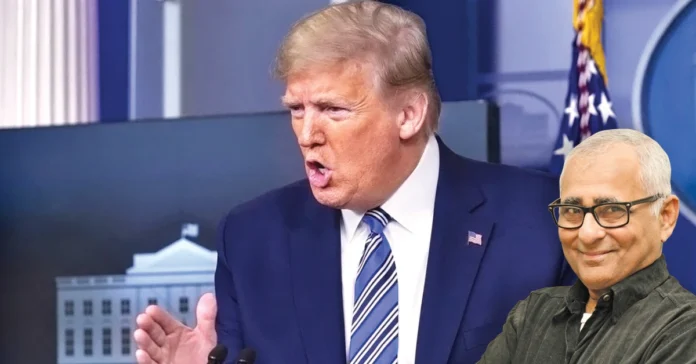By Inderjit Badhwar
In this week’s India Legal, our US Editor Kenneth Tiven dissects a defining moment in global diplomacy—the self-proclaimed triumph of Donald Trump in brokering what he calls “peace” between Israel and Hamas. It is a story not just of politics, but of perception, performance, and power in an age when international crises are increasingly shaped by personality cults.
At first glance, Trump’s claim appears impressive. After months of brutal warfare in Gaza, the guns have fallen silent, hostages have been released, and diplomatic channels are once again open. But as Tiven reveals, this is no peace treaty—it is a fragile pause, a ceasefire stitched together with ego and expediency.
The Gaza Strip remains a wasteland of broken homes, crumbling hospitals, and shattered infrastructure. For its two million residents, “peace” means little when food, water, and shelter are luxuries. The humanitarian crisis is far from resolved, and the political architecture needed to rebuild Gaza has not even begun to take shape. In such conditions, a ceasefire without reconstruction is merely a delay before the next explosion.
Tiven’s story lays bare the underlying irony: both Trump and Netanyahu—leaders driven by the optics of strength—found in this deal a mirror of mutual advantage. Netanyahu, under siege at home for intelligence failures and corruption charges, needed a political win. Trump, in pursuit of renewed relevance and perhaps a Nobel Prize, needed a global headline. Together, they found a way to appear decisive without addressing the underlying injustice that fuels perpetual conflict.
What makes this analysis so vital is its clarity about the human stakes behind the headlines. While Trump speaks of victory and strategy, ordinary Palestinians are digging through rubble to find their dead. The supposed “deal” does not address Gaza’s reconstruction, Hamas’s governance vacuum, or Israel’s occupation policies—all essential to lasting peace. Instead, the ceasefire risks becoming another stage-managed episode of geopolitical theatre.
Tiven also touches a nerve about American politics. Trump’s ability to rewrite the narrative of Middle East diplomacy exposes how thoroughly he dominates his party. Had President Joe Biden proposed the same ceasefire, Republican lawmakers would have denounced it as betrayal. Yet under Trump, the right hails it as statesmanship. This distortion of standards reveals the extent to which foreign policy has become an instrument of partisan identity in the United States.
Beyond the politics, this story reminds us of the moral fatigue that surrounds conflicts like Gaza. The world’s attention span has shortened; social media amplifies outrage, but seldom sustains empathy. In this environment, Trump’s “20-point plan” looks less like diplomacy and more like a public relations blueprint—a peace process designed for prime time rather than posterity.
India Legal believes that journalism must challenge the convenient myths of power. Tiven’s account does precisely that. By reconstructing the events behind the ceasefire, he invites readers to see how political self-interest masquerades as peacemaking. The stakes are immense: every illusion of peace untested by justice risks perpetuating violence.
As an editor, I find in this story a sobering lesson. Peace cannot be brokered by ego alone. It requires empathy, accountability, and the courage to face uncomfortable truths. Trump’s ceasefire, like many before it, may win applause in the moment—but history will measure it by what happens when the cameras leave and Gaza’s children still have no homes to return to.
That is why Tiven’s piece matters—not just as foreign reportage, but as a cautionary study in how democracies mythologize their leaders while ignoring the victims of their vanity. His writing insists that we look beyond the headlines, beyond the boasts, to the human cost of “great deals.”
For readers of India Legal, this story underscores our mission: to probe, question, and reveal how law, power, and morality intersect in shaping human destiny. The Gaza ceasefire may fade from the news cycle, but the questions it raises—about leadership, accountability, and the meaning of peace—will endure.


